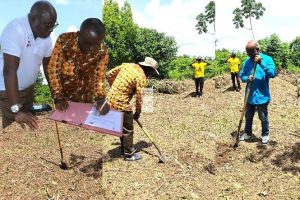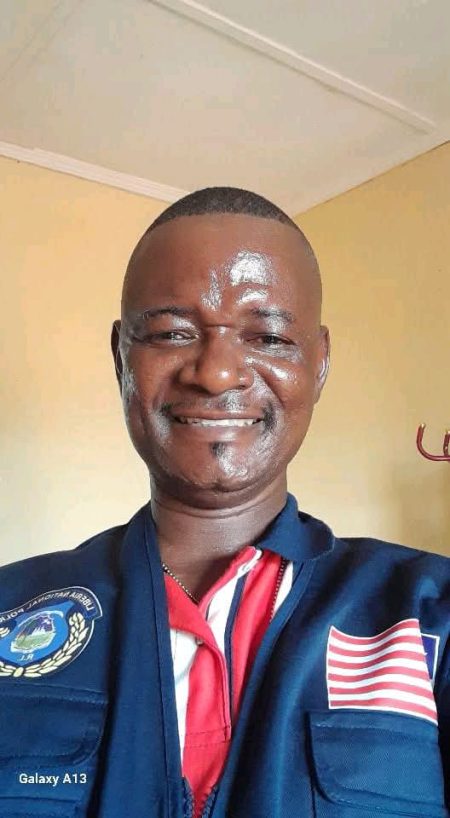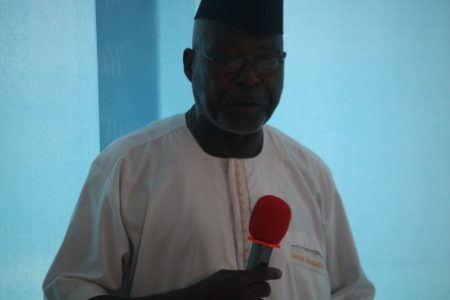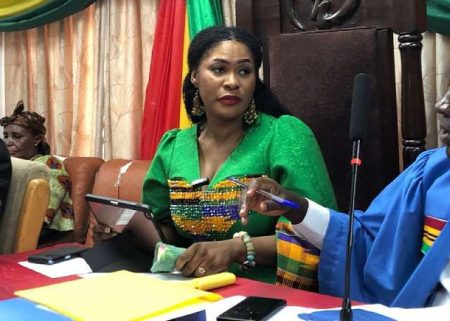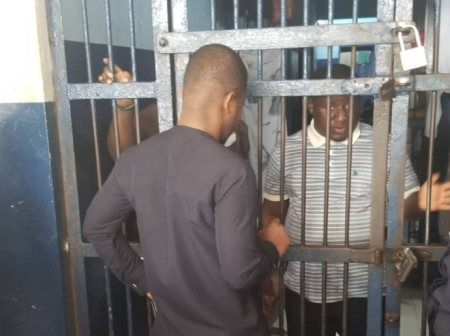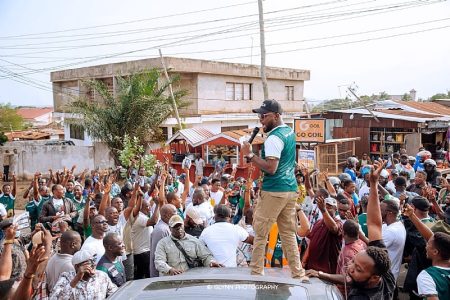The arrest of Michael Kwadwo Peprah, President of the National Concerned Small Scale Miners Association, during an anti-illegal mining operation has ignited controversy and fueled debate surrounding the government’s approach to combating illegal mining in Ghana. Peprah’s detention, which occurred on July 10th in the Ashanti Region, stemmed from his questioning of the taskforce’s legitimacy during an operation in Subriso Fante. He maintains that his arrest was not due to any criminal activity but rather his attempt to verify the authenticity of the taskforce, citing concerns about imposters posing as law enforcement to harass legal miners and confiscate their equipment. This incident has brought into sharp focus the potential for abuse of power and the need for greater transparency and accountability in anti-illegal mining operations.
Peprah’s account of the events paints a picture of an aggressive and swift response from the taskforce. Upon approaching the team to ascertain whether their operation was officially sanctioned, he was immediately accused of obstructing their duties and subsequently apprehended. While no formal charges were filed against him and he was later released, the incident raises serious questions about the conduct of such operations and the rights of individuals, particularly those operating within the often complex and informal landscape of small-scale mining. The fact that Peprah, a prominent advocate for small-scale miners, was targeted for simply questioning the taskforce’s authority adds another layer of complexity to the situation.
The incident has resonated deeply within mining communities, where concerns about overzealous enforcement and the lack of due process are widespread. Peprah’s experience echoes the anxieties of many small-scale miners who fear being unfairly targeted in the government’s crackdown on illegal mining. This apprehension is rooted in the often blurry lines between legal and illegal small-scale mining operations, making it difficult for enforcement agencies to accurately differentiate between the two. The lack of clear distinction often leaves legitimate miners vulnerable to harassment and unjust seizures of their equipment, jeopardizing their livelihoods and further fueling mistrust between miners and law enforcement.
Following his release, Peprah took to social media to elaborate on the incident and reiterate his call for a shift in the government’s strategy against illegal mining. He advocates for a move away from what he perceives as “brute force tactics” and towards more sustainable, long-term solutions that promote responsible mining practices. His argument centers on the belief that aggressive crackdowns, often involving military-style operations, not only fail to address the root causes of illegal mining but also exacerbate tensions within mining communities. He emphasizes the need for greater oversight and accountability for taskforces involved in anti-illegal mining operations, arguing that the lack of transparency creates an environment ripe for abuse and undermines the trust necessary for effective collaboration between the government and mining communities.
Peprah’s arrest has re-energized the ongoing discussion surrounding the government’s fight against illegal mining, commonly known as “galamsey,” and brought the issues of force and accountability to the forefront. The incident is likely to amplify calls for greater transparency and due process in anti-galamsey operations, especially in regions heavily reliant on small-scale mining. Observers suggest that this event could be a catalyst for demanding clearer guidelines and protocols for taskforces, ensuring that their actions are legally sound and respect the rights of individuals. The focus is expected to shift towards fostering a more constructive dialogue between the government, mining communities, and stakeholders to develop more effective and sustainable solutions to the complex problem of illegal mining.
This incident highlights the crucial need for a more nuanced approach to combating illegal mining in Ghana. The emphasis should be on establishing clear distinctions between legal and illegal operations, providing support and training for small-scale miners to operate within the legal framework, and ensuring that enforcement agencies are adequately trained and equipped to carry out their duties responsibly and with respect for the rights of all stakeholders. A more collaborative and comprehensive strategy, one that addresses the underlying socio-economic drivers of illegal mining while ensuring fair and transparent enforcement, is essential for achieving long-term success in the fight against galamsey and fostering sustainable development within mining communities.



